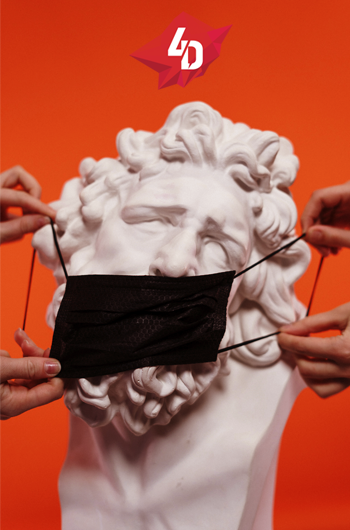
The coronavirus and the economic crisis turned the usual reality of humanity, affecting all aspects of society and business. The sphere of marketing and PR didn’t stay away from these rapid processes. The theme of the pandemic is played by almost everyone: from super brands like LV, Zara, Jeep, Google to the smallest companies. A disaster of this magnitude is a kind of "cornucopia" for ideas and implementations in situational marketing. But what should it be-PR in an era when the abbreviation COVID-19 comes to our eyes more often than any other combination of letters? Where is the line between a catchy advertising campaign "on the spite of the day" and PR "on the bones"? Let's figure it out.
It seems that the public's attitude to the topic of coronavirus changed consistently during the first months of 2020. So, until recently, it was a purely Chinese attack, and the topic of the virus itself was quite a reason for black humor and uncomplicated blogger hype. However, when the pandemic went beyond the borders of the middle Kingdom, and Europe was in full glee, and then the whole world – it was really not up to laughter. The desire to joke against the background of frightening statistics of deaths and the crisis in the world economy remained only for the creators of memes or completely desperate businesses, often businesses on the verge. Serious brands and companies have taken a fundamentally different course. The main features of their situational marketing were altruism, seriousness and global social orientation. Specialists of the Communication Agency 4D highlighted the main trends of "coronavirus" marketing.
Forewarned is forearmed
Informing your clients is a necessary minimum, and it does not require special expenses. Reminders about prevention of coronavirus, proper hand washing and compliance with basic rules appeared on instagram and on the websites of hundreds of companies. A reminder of the importance of these simple actions is a gesture of concern for customers and a small but very important contribution to the fight against the spread of the disease. Yes, this will definitely add to your brand's karma.
Safety Comes First
Show clients who are panicking about the coronavirus that their safety is not an empty word for you. This strategy is especially important for offline businesses: the restaurant market, retail, and beauty salons. Sanitizers, masks and medical gloves this spring are no longer alarmist, but must do. Thus, hand sanitizers appeared in Lenta retail outlets, and Maxidom and other retailers put markings on the floor that allow them to stand at a safe distance from each other. In all stores of the "Smile of the rainbow" chain, the cash register area and door handles are treated with a disinfectant every hour, and the frequency of cleaning the trading floor has been increased: floors are washed twice a day using chlorine-containing products. It is important that companies started thinking about these initiatives even before it became a requirement. And thus addressed the fans of their brand with an important message.
Keeping a distance is one of the precautionary measures that not only retailers respond to. An excellent example of situational marketing on this topic was shown by McDonald's, which divided the arches on its logo. Later, they changed the elements on their Audi, BMW and Yandex logos in the same way.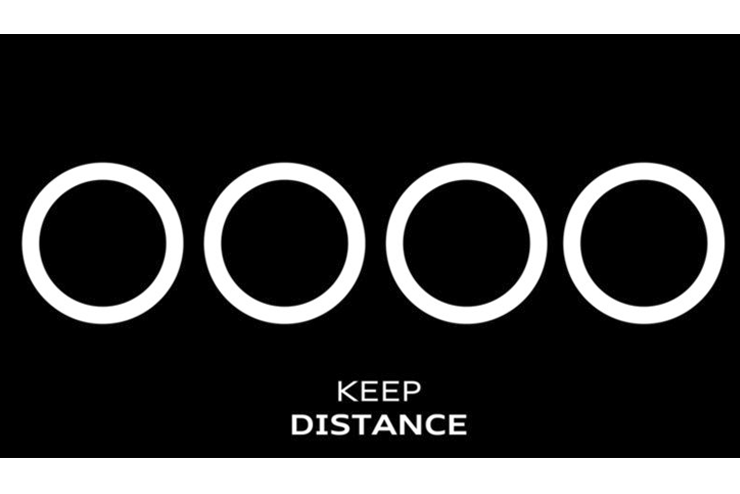
Contactless delivery is also about security. The order is left at the door, saving the customer from having to contact the courier. Such a service has already been introduced by restaurant chains, food delivery companies, LaModa online store, and Wildberry. The option of contactless delivery of ready meals has also appeared in the leaders of the Delivery Club and Yandex.Food segments. Of course, all these innovations should not just be told, but shouted to their customers through all possible channels.
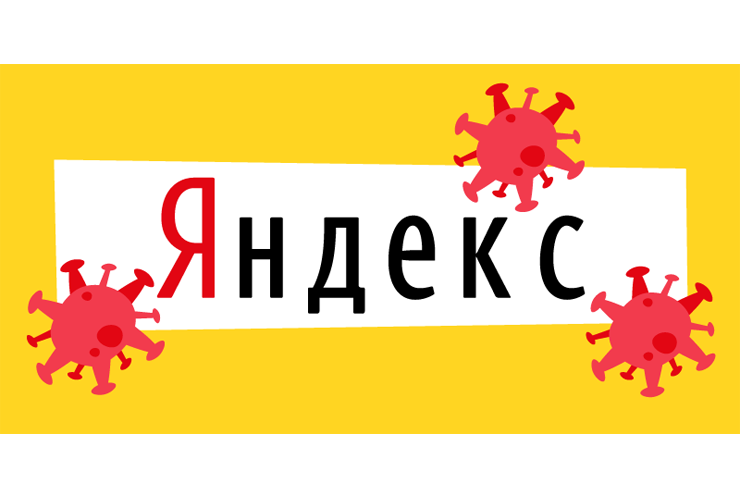
Stay home…
We have identified the topic of self-isolation as a separate niche of situational marketing, which is one of the most important messages to society in today's reality. Doctors, politicians, artists and athletes are calling for a reduction in social activity of the planet's inhabitants. The population understands this, but the majority of them resist. Then brands join in the persuasion, and now the advice to stay at home is caught our eyes literally everywhere: on online shopping sites, streaming services, social networks, messengers, and even on adult portals. Burger King is urgently changing its restaurant signage from "Home of the whopper" to "Stay home".
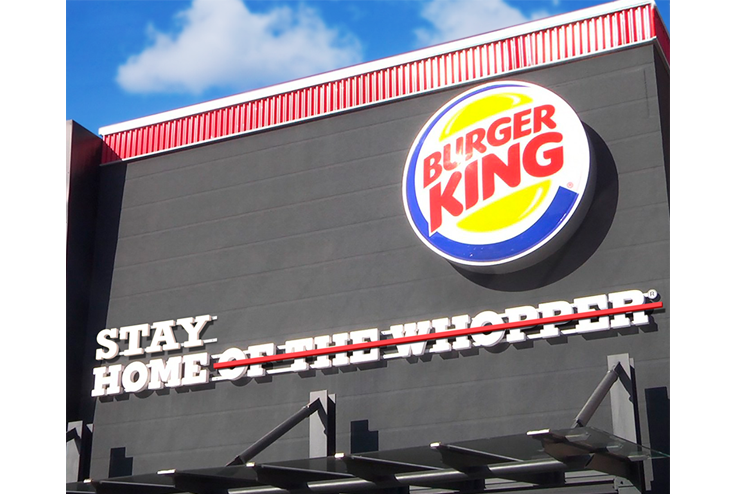
Another great example is a Nike ad with a heartwarming call to switch to home training: "If you dream of playing for millions of people, this is your chance. Train at home and play for the whole world." The phone screens of Russian MTS users now also have a permanent reminder-next to the MTS sign, the company attributed the hashtag #BUD'DOMA. In support of the call for doctors to stay home, the 4D Agency also temporarily changed the logo, embedding an image of a medical mask in the company's letter D.
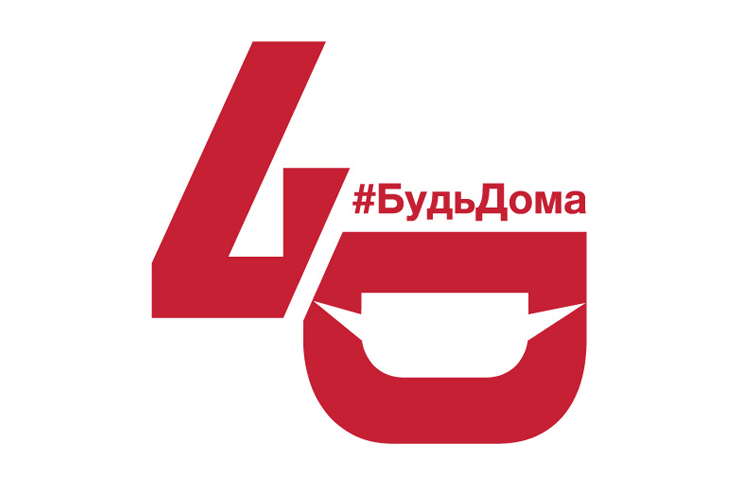
...And don't get bored
We see a lot of great situational marketing cases online now. After all, with the widespread transition of people to "remote" and with the introduction of stricter quarantine measures, only virtual reality becomes "real" for everyone. Going to a Museum, theater, movie, or concert is a thing of the past. Brands do not stand aside and help make the lives of isolated people more diverse and interesting.
Online cinema Okko made a free subscription to movies and became a platform for a whole cycle of live performances! Starting with the concert of the group BI-2, the project "SHOW ON!" was launched with live concerts of rock and pop artists, which was already attended by Garik Sukachev, singer Valeria, and the schedule for April already includes concerts by the group Splin and the artist EMIN. All these actors, for obvious reasons, were forced to cancel their concerts in offline. For fans of classics, Okko together with Sberbank launched the project "Art online" - a media library with recordings of performances, concerts, and virtual excursions. The project managed to attract the main theatrical pearl of the country - the Mariinsky theater, the Moscow Philharmonic, the Golden Mask festival, the Tretyakov gallery and many other venues. Access to the resource will also be free for the duration of the quarantine. Similar promotions are now being implemented by other services: Premier, IVI, Amediateka and Kinopoisk.
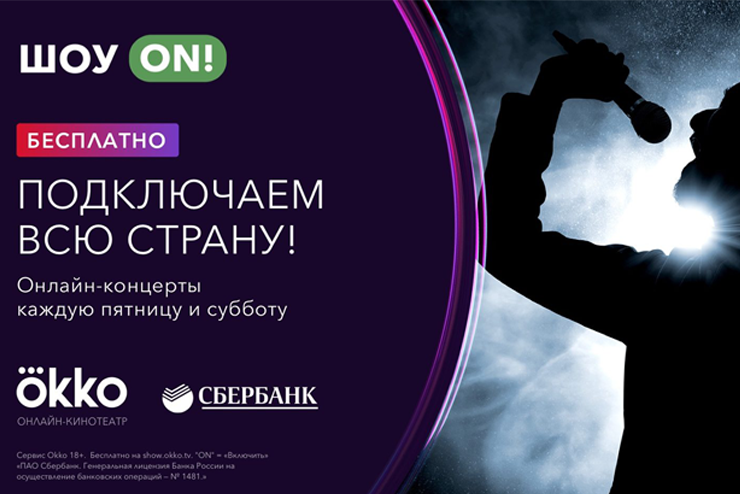
A number of video game publishers, such as Steam, UBISOFT, EPIC GAMES, as well as the iTunes Store and Google Play services, also organized free distribution of their products.
Educational projects have also joined the initiatives of entertainment portals – such as Radio Arzamas, Coursera, Alpina publishing house and online libraries (audiobooks on Bookmate, etc.). finally, under the elegant slogan "Touch yourself safely", PornHub provided access to premium account features. And if at first the campaign was intended only for residents of Italy, which is covered by the epidemic, then users from all over the world got access.
Separately, you can select companies and services that support businesses that are adapting to work in an online format. For example, Google Hangouts, Microsoft Teams, and MegaFon platforms have opened up free access to video conference packages.
Assistance and mutual assistance
In the current reality, it is not easy for everyone, including brands with a world name. Nevertheless, many find resources to help in the fight against the pandemic. Fashion brands Moncler, Dolce & Gabbana, Prada, Armani, Versace donate impressive amounts to the development of a coronavirus vaccine and to help hospitals. Their example was followed by Russian business. So, large donations were made Mail.ru Group, Yandex, Alfa Group, and the Rotenberg brothers ' structures that allocated 50 million rubles to the Botkin hospital in St. Petersburg.
The factories of Christian Dior, Guerlain, Givenchy and L'oréal produce antiseptics, a shortage of which is experienced by doctors around the world. Their example was followed by the domestic company Faberlic, which repurposed part of the production lines.
Calzedonia, Zara and Mango have started making medical masks and protective suits for doctors.the factories that make clothes for Balenciaga and Yves Saint Laurent brands are next in line. Reusable protective masks began to be produced at the Moscow factory Finn Flare.
Private initiatives have also appeared. For example, an employee of an IT company created a single order number for products for the elderly in Moscow and Saint Petersburg. To place an order, you need to call the number +7 812 425 14 45 in St. Petersburg, +7 (499) 938-87-38 in Moscow, dictate a list of products and leave contacts. Calls will be answered by a robot voice. Lenta became a partner of the project in St. Petersburg. The hypermarket chain coordinates the work of volunteers, and a special chat has been created for those who want to help.
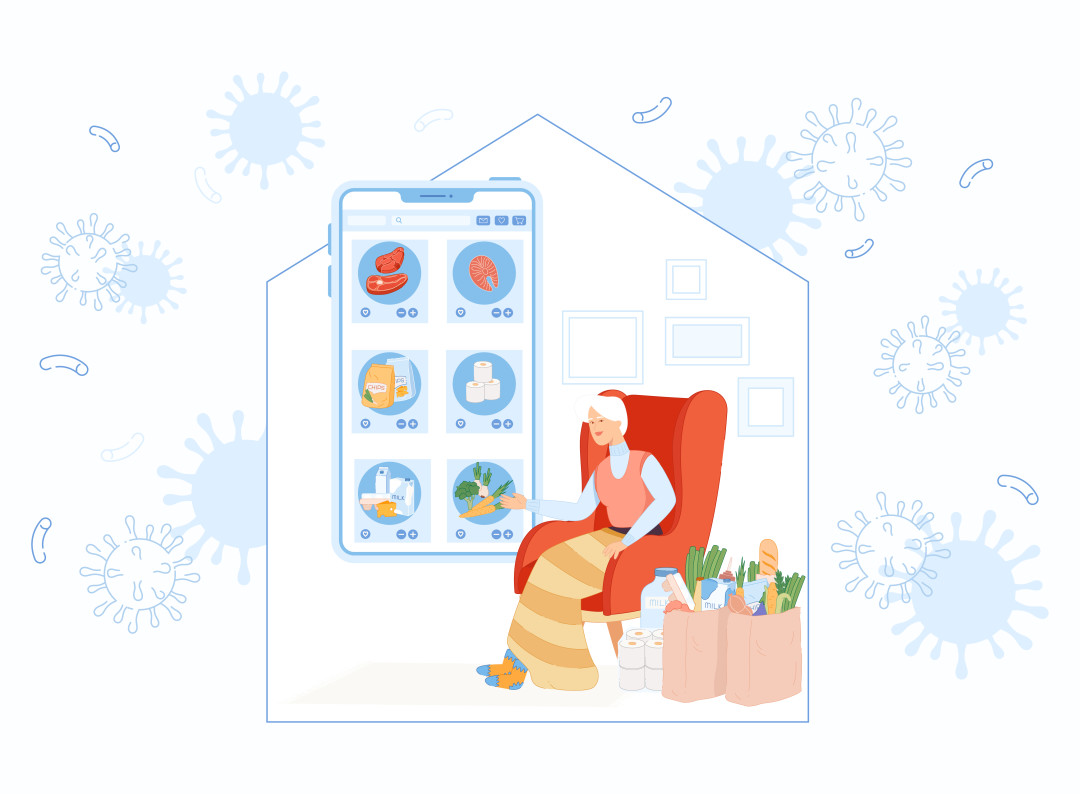
No jokes?
As we can see, marketing in the conditions of coronavirus is not about jokes at all. But space for humor PR and marketers gives Intercontinental hysteria, which gave rise to empty shelves with toilet paper. Thus was born the term Covidiot (the"comedit") used to describe a person, mindlessly ravaging the stores. Every country has its own symbols for this kind of panic. In Russia, this is, of course, buckwheat. After all, she has become the heroine of situational marketing in recent weeks. For example, the soothing "we also have buckwheat" appeared in an ad for the delivery service of the St. Petersburg restaurant holding Ginza. And the Auchan hypermarket chain launched a "quarantine cart" service that included a " panicker kit." Photos of trolleys filled with sugar, cereals and toilet paper instantly went viral. Packages of buckwheat for a symbolic 10 rubles were put up in their online store by the Russian clothing brand 12storeez. However, then the bags of cereals disappeared from the site, but they began to be added to orders freely – customers almost certainly appreciated the humor.
How's better?
In fact, "coronavirus" PR, like any PR, can be different. It all depends on your goals and your brand values.
So, the Russian representative office of the condom brand Vizit at the end of January beat the then Chinese coronavirus with a picture with a mask and the slogan "Isolate the infected in the province of "Gan Dong". The joke was quite in the style of the brand, which regularly gets into fights with media personalities from feminist groups to the host of channel One. But in the reality of spring, customers are unlikely to appreciate such situational marketing.
On attempts to arrange a "feast during the plague" often come across restaurateurs. Understand them, in general, you can, in the war for a rapidly disappearing guest fit, as it seems to them, any methods.
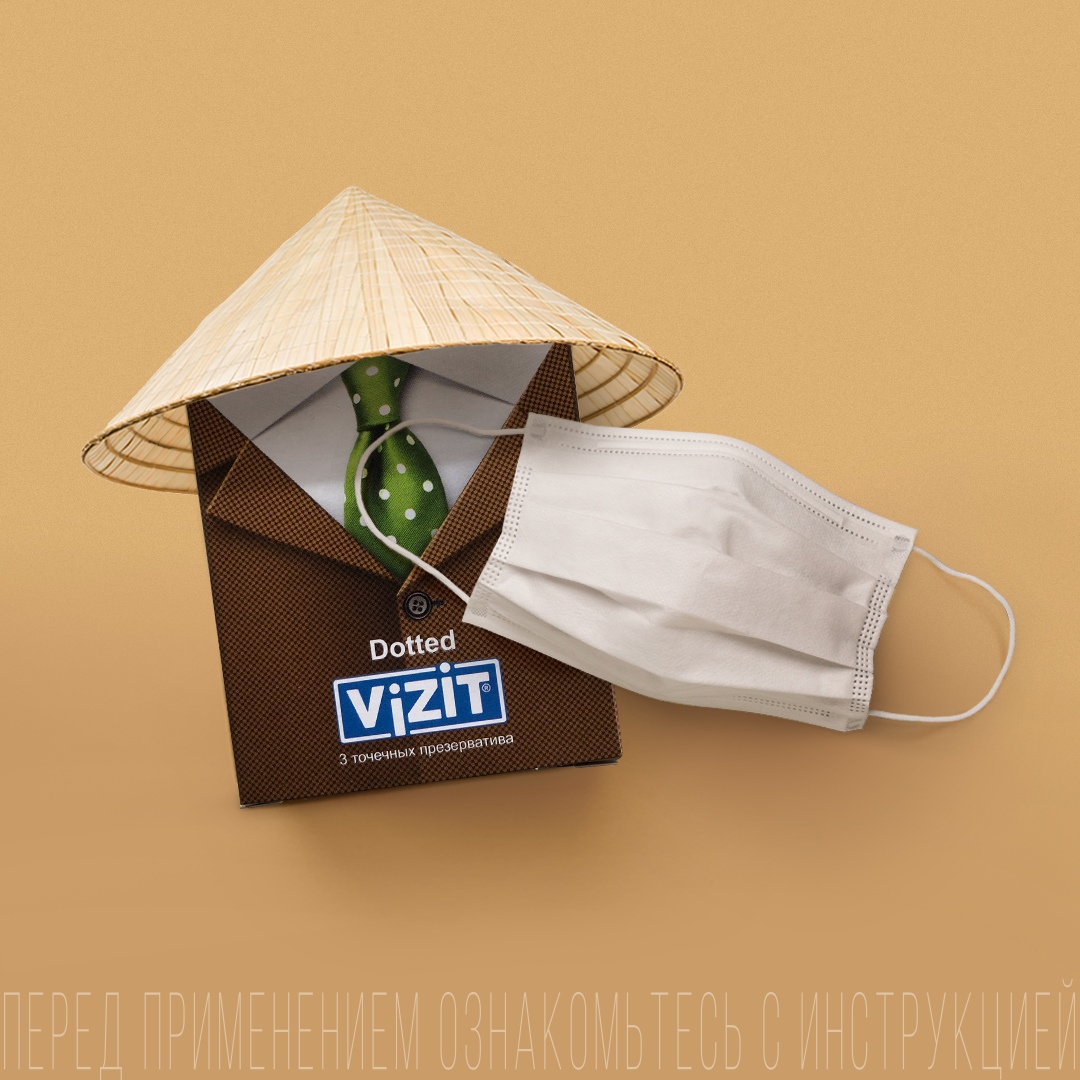
For example, the restaurant chain "Tokyo city" in early March launched a promotion with 50 percent discounts on
sushi sets. However, the offer did not apply to delivery. As a result, the company was accused of greed and attempts to drive people into restaurants, despite universal calls for maximum isolation. We must pay tribute - here the marketers of "Tokyo city" worked quickly, and now the offer is only valid for delivery or pickup.
In favor of alcohol in the prevention of coronavirus, bars are actively trying to restrain themselves, which are perhaps in the most difficult situation (the delivery of alcohol is prohibited in Russia). For example, SMM specialists of the St. Petersburg restopab chain Mollies compare alcohol with a disinfectant and promise to compensate for its shortage in pharmacies. Unfortunately, such marketing won't help you get your guests back "right now", and it probably won't add points to the brand itself.
Proper PR in the context of a pandemic may not solve all the problems of your business. But a competent approach to working with clients, understanding the current needs of society when building a marketing strategy, will certainly help your brand quickly get back on its feet after the end of the quarantine. The main thing – do not forget about efficiency. It is the key to successful situational marketing. Buckwheat and toilet paper are no longer in trend!



